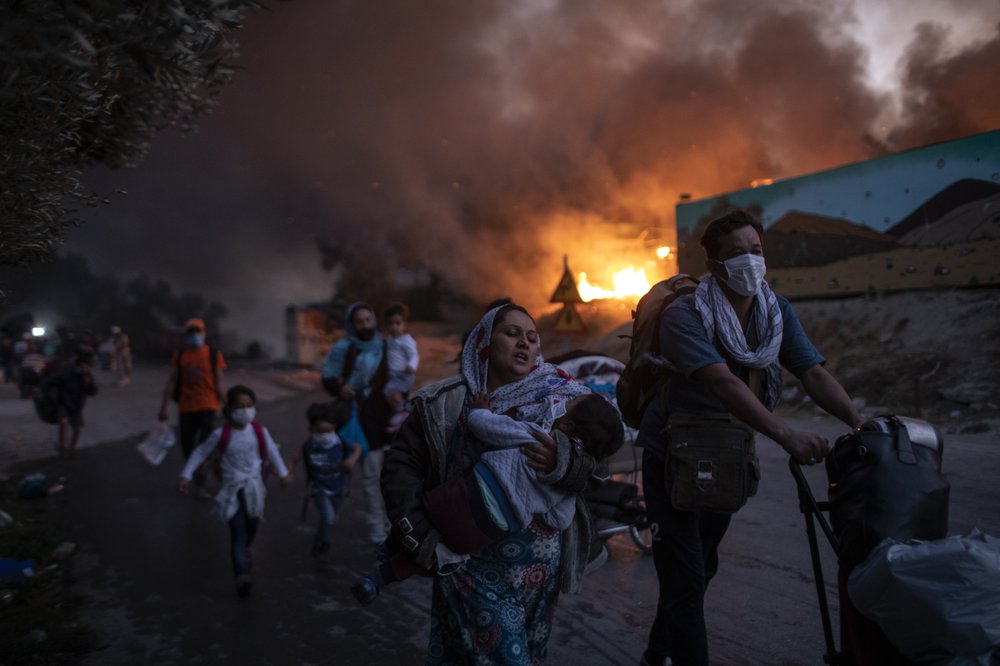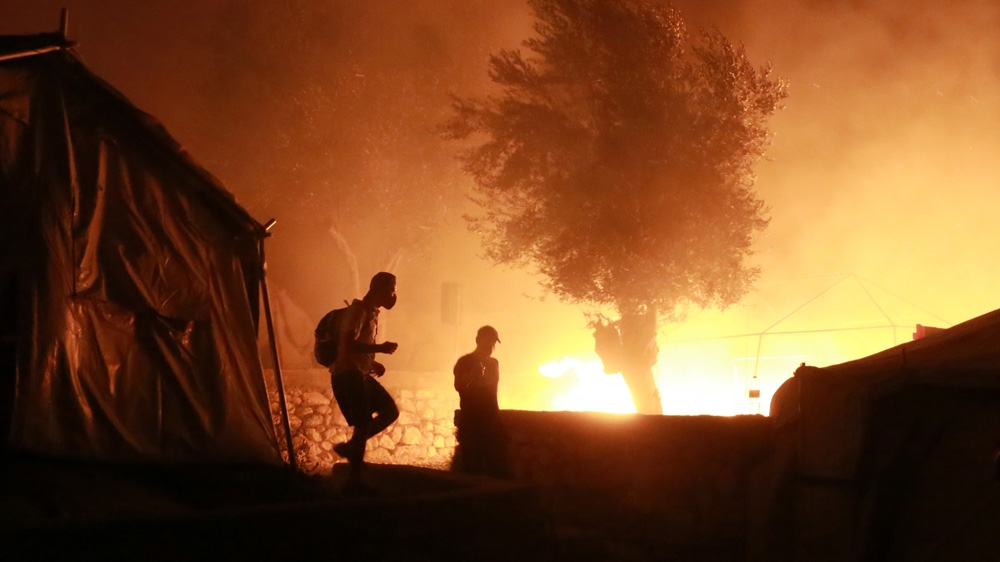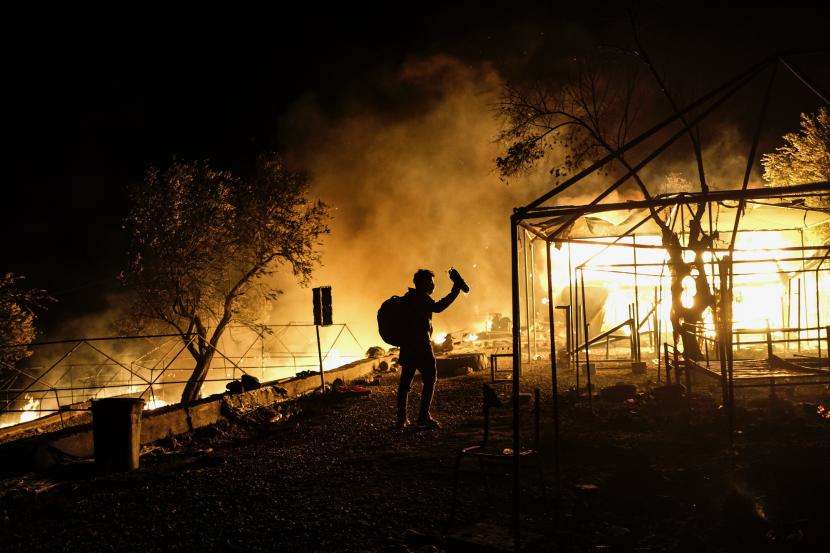UPDATE: The four Afghan asylum-seekers were sentenced to 10 years in prison in Greece.
Four young Afghan asylum seekers were tried in Greece on Friday on charges of starting the devastating fires that burned down Europe’s largest migrant camp last year.
Moria camp on the Aegean island of Lesbos housed more than 10,000 people before being destroyed by two fires in September 2020.
The four Afghans, who are on trial on the neighbouring island of Chios, are charged with arson causing risk to human life and belonging to a criminal group.

A legal source told AFP the four could face up to 15 years in prison if found guilty on both counts. No media were allowed to enter the courtroom due to coronavirus precautions.
Two other young Afghans were jailed in a prison near Athens for five years for the same case in March.
Defense lawyers for Afghans appearing on Friday argued that their clients had not received a fair trial.
READ MORE: Two Afghan youths sentenced to five years jail for causing catastrophic Moria fire
They say three of them had documents showing they were under 18 at the time of their arrest, but were not recognized as minors by the Greek state.
The trial is based largely on the testimony of another Afghan asylum seeker who identified the six as the perpetrators.
Defense lawyers said the witness was not in court on Friday and did not appear at trial last March because he could not be located.

The defendants say they were targeted by the witness, a Pashtun ethnic group, as all six are Hazaras, a minority long persecuted in Afghanistan.
The other prosecution witnesses are police officers, firefighters called to the scene in September 2020 and staff from the European Asylum Service and non-governmental groups working in the camp.
The EU has allocated 276 million euros ($ 336 million) to build a new permanent camp on Lesvos and for similar facilities on the islands of Chios, Samos, Kos and Leros.
Source: AFP

